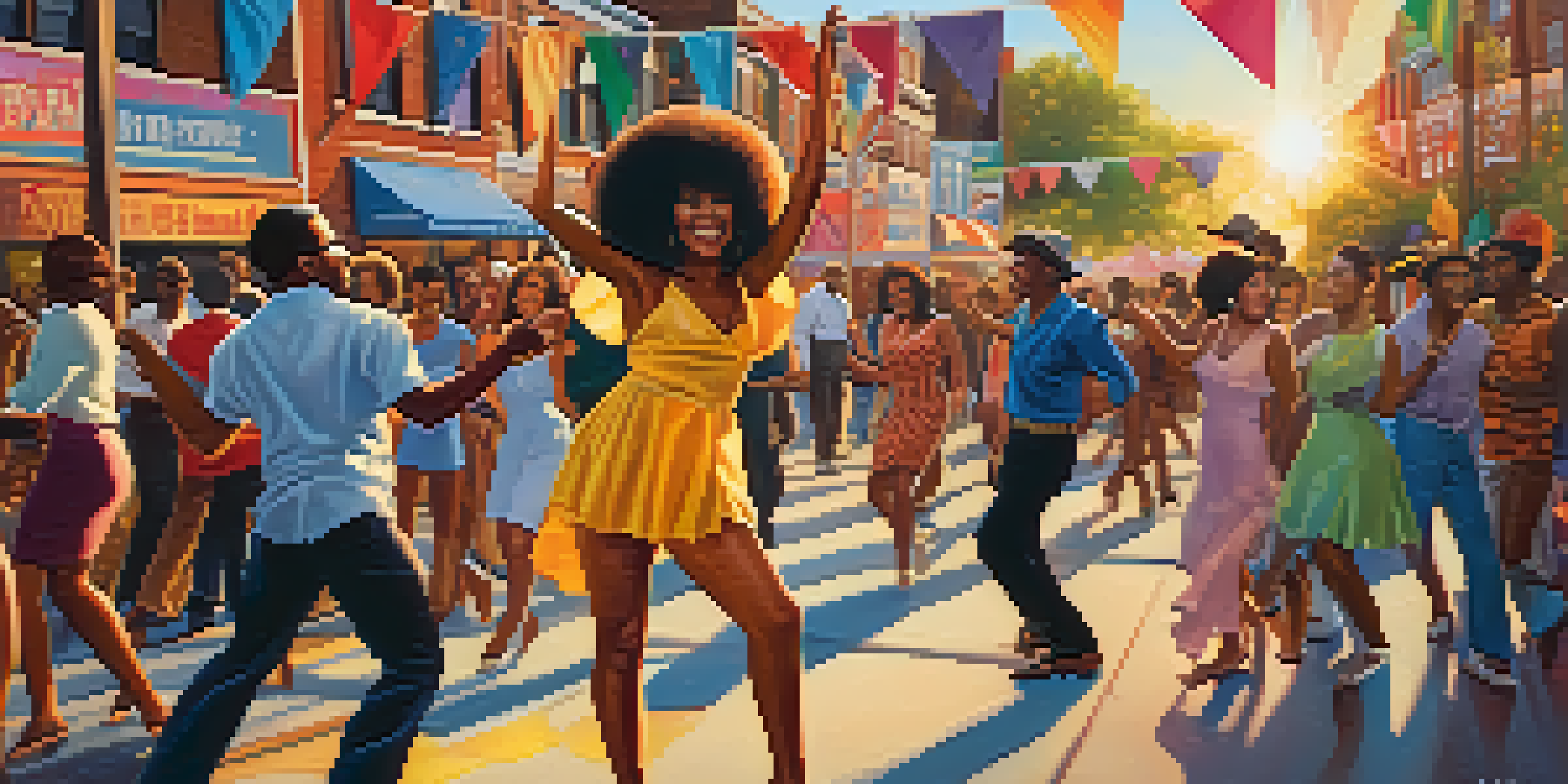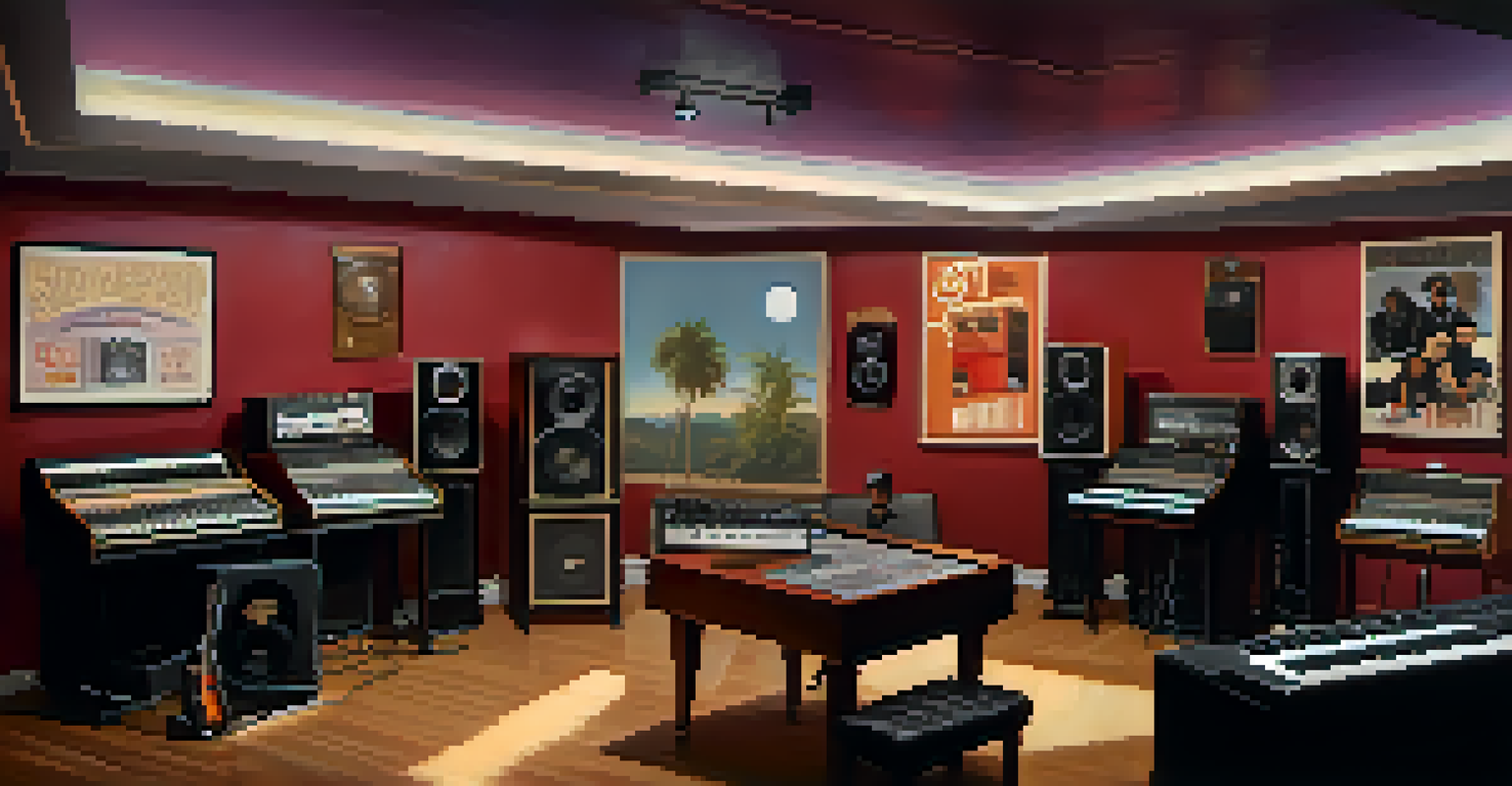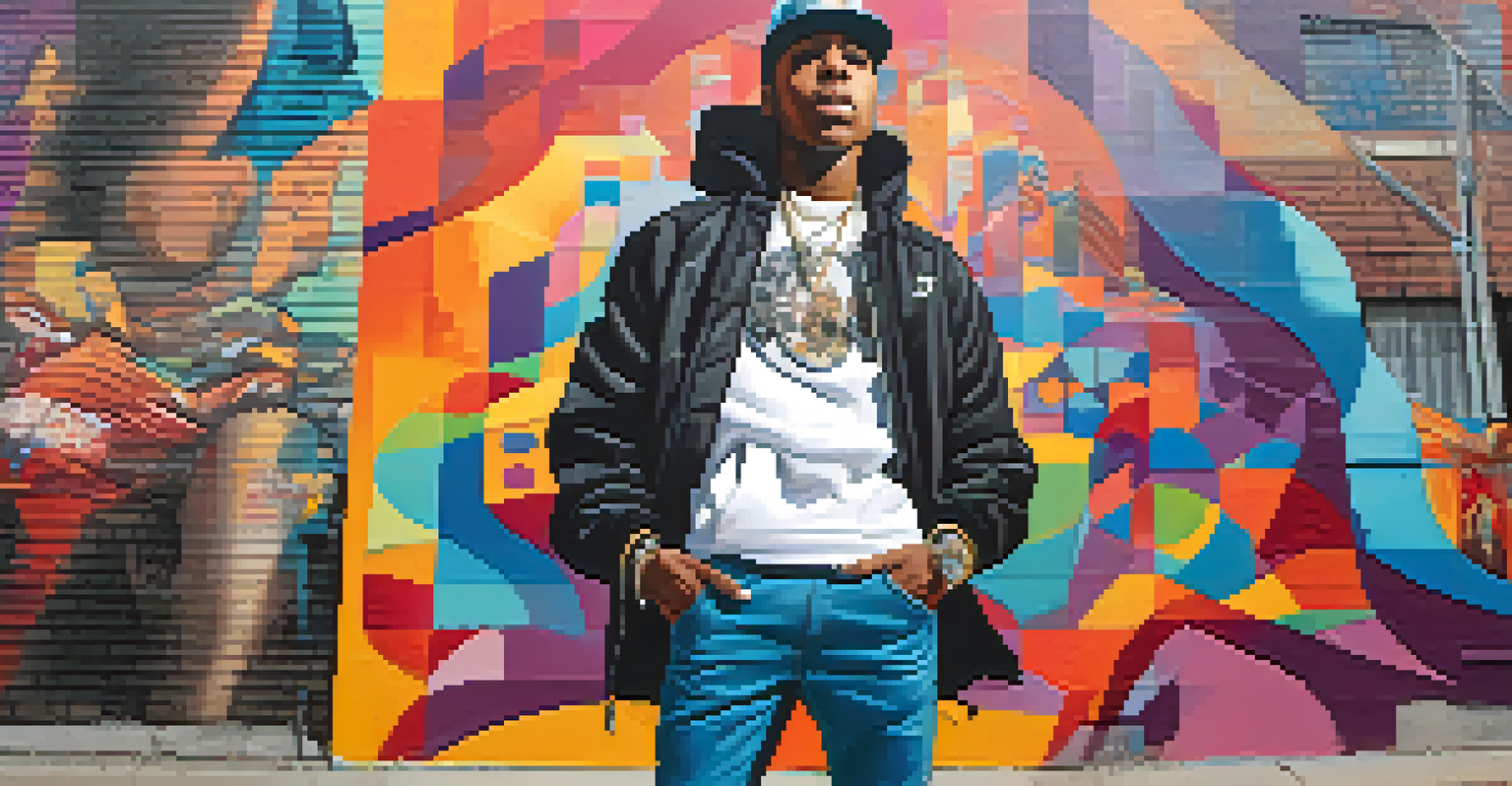Motown's Legacy: How It Influenced Detroit Hip-Hop Artists

The Birth of Motown: A Cultural Revolution
Motown Records emerged in Detroit in the late 1950s, founded by Berry Gordy. It wasn't just a record label; it was a cultural movement that brought African American music to the forefront of American pop. This blend of soulful melodies and catchy hooks laid the groundwork for various music genres, including hip-hop.
Motown was a cultural revolution that changed the face of American music.
The Motown sound, characterized by its strong rhythms and smooth vocal harmonies, resonated not only with the artists of the time but also with future generations. This sound became synonymous with Detroit, influencing countless musicians who grew up in the city. The essence of Motown continues to echo in the music produced by Detroit hip-hop artists today.
As the Motown legends like Marvin Gaye and Diana Ross gained fame, they inspired young artists by showcasing the power of storytelling through music. This legacy of lyrical depth and emotional resonance has been a guiding principle for many Detroit hip-hop artists, who strive to convey their own stories.
The Connection Between Motown and Hip-Hop Rhythms
At the core of both Motown and hip-hop is a strong emphasis on rhythm. The infectious beats of Motown have been sampled and reimagined in countless hip-hop tracks, creating a bridge between the two genres. For example, artists like J Dilla have skillfully incorporated elements of the Motown sound into their productions, enriching the hip-hop landscape.

This rhythmic connection showcases the evolution of music in Detroit, where the legacy of Motown serves as a foundation for contemporary hip-hop. Many hip-hop artists pay homage to the Motown sound by incorporating similar drum patterns and melodic structures in their work. This blending of genres not only honors the past but also creates a unique sound that is distinctly Detroit.
Motown's Cultural Impact on Music
Motown Records revolutionized American pop music by highlighting African American artists and their stories, influencing genres like hip-hop.
Moreover, the influence of Motown can be seen in the way hip-hop artists approach their craft. Just as Motown artists focused on creating catchy hooks, many hip-hop artists prioritize memorable choruses, ensuring their music remains accessible and engaging to listeners.
Lyrical Themes: From Soul to Struggle
Motown music often tackled themes of love, heartbreak, and resilience, providing a narrative that resonated with many listeners. Similarly, Detroit hip-hop artists use their lyrics to tell stories of struggle, triumph, and identity. This connection in storytelling reflects the rich emotional landscape that both genres explore.
Hip-hop is the voice of the streets, echoing the struggles and triumphs of its people.
For instance, artists like Eminem and Big Sean draw inspiration from their personal experiences, echoing the heartfelt narratives found in Motown classics. The ability to tell a compelling story through music has become a hallmark of Detroit's hip-hop scene, rooted in the same emotional depth that characterized Motown hits.
By weaving personal narratives into their music, hip-hop artists not only preserve the legacy of Motown but also expand upon it. They create a space where vulnerability and authenticity are celebrated, mirroring the emotional honesty that made Motown songs timeless.
Collaborative Spirit: The Motown Model
One of the defining features of Motown was its collaborative spirit, where artists, producers, and songwriters worked together to create magic. This model has been mirrored in the Detroit hip-hop community, where collaboration is key. Artists often come together to create tracks that blend different styles and perspectives, much like their Motown predecessors.
This collaborative approach not only fosters creativity but also strengthens the community. Much like the Motown house band, The Funk Brothers, modern Detroit hip-hop artists often rely on a network of producers and musicians, enhancing the overall sound and impact of their music. The result is a vibrant scene that thrives on shared creativity.
Rhythmic Connection Between Genres
The rhythmic foundations of Motown have been sampled and reimagined in hip-hop, creating a unique sound that bridges both genres.
Moreover, collaborations between established artists and newcomers have become a hallmark of Detroit hip-hop. This openness to working together allows for fresh ideas to emerge, keeping the spirit of innovation alive, reminiscent of the collaborative efforts that defined Motown's success.
Iconic Detroit Artists Drawing From Motown
Several contemporary Detroit hip-hop artists have openly acknowledged Motown's influence on their work. For example, artists like Royce da 5'9'' and Danny Brown have often cited the Motown sound and ethos as pivotal in shaping their musical identities. This acknowledgment serves as a testament to the enduring legacy of Motown in modern music.
These artists not only incorporate the Motown sound into their music but also reflect the cultural pride associated with it. By embracing their city's musical heritage, they contribute to a narrative that celebrates Detroit's rich artistic history. This connection helps foster a sense of identity and belonging among listeners.
Additionally, the incorporation of Motown elements into their hip-hop tracks allows these artists to reach a broader audience. They bridge generational gaps, inviting fans of classic Motown music to appreciate the contemporary sounds of Detroit hip-hop, thus expanding the legacy further.
Motown's Global Influence on Hip-Hop Culture
The influence of Motown extends far beyond Detroit; it has shaped hip-hop culture on a global scale. Artists from around the world have drawn inspiration from Motown’s soulful melodies and powerful storytelling. This cross-pollination of influences showcases the universal appeal of Motown music.
Hip-hop artists globally often sample Motown classics, reinterpreting them to fit their own cultural contexts. This practice not only honors the original artists but also highlights the adaptability of Motown's sound across different genres and styles. It’s a beautiful reminder of how music can transcend boundaries and connect people.
Legacy of Collaboration in Detroit
The collaborative spirit of Motown continues to thrive in Detroit's hip-hop scene, fostering creativity and community among artists.
Moreover, the celebration of Motown's legacy in hip-hop culture fosters a sense of unity among artists and fans alike. Whether in Detroit or overseas, the appreciation for Motown's contributions creates a shared bond, showcasing the power of music to inspire and influence across diverse communities.
Preserving Motown's Legacy in Detroit's Future
As Detroit hip-hop continues to evolve, preserving the essence of Motown remains crucial. Many artists are committed to keeping Motown's legacy alive by blending its sound with contemporary influences. This dedication ensures that the spirit of Motown will resonate in future generations of musicians.
Educational initiatives and community programs in Detroit also play a role in maintaining this legacy. By teaching young artists about the rich history of Motown, they are encouraged to draw from this well of inspiration as they develop their own unique sounds. This connection to the past empowers the next generation of artists.

Ultimately, the fusion of Motown's soulful roots with the innovative spirit of hip-hop creates a vibrant musical landscape. As long as artists continue to pay homage to their predecessors, the legacy of Motown will thrive, shaping the future of Detroit's music scene for years to come.